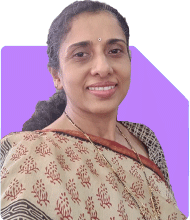Can I reach my retirement goals with these mutual funds?
Ramalingam Kalirajan |8324 Answers |Ask -Follow
Mutual Funds, Financial Planning Expert - Answered on Sep 30, 2024
He has an MBA in finance from the University of Madras and is a certified financial planner.
He is the director and chief financial planner at Holistic Investment, a Chennai-based firm that offers financial planning and wealth management advice.... more

Im 35 years old and investing in mutual funds for retirement and kids future. I have months baby boy now. 30k sip for retirement and i would like retire in next 15 years. My current salary is 1.6 lacks per month. If want to retire ik next 15 years as per inflation i meed around 5cr. Please see my mutual funds and suggest if i can reach my goal in next 5 years with 30k sip. 1. Nippon small cap 2. Tata small cap 3. Motilal mid cap 4. Quant mid cap 5. JM flexi cap These are for retirement each 6k 6. Quant flexi cap 5k for future education I will add one more fund if i plan for second kid I don't want to go index and large cap since those returns are less and my retirement period is less. Should i remove any funds?or change required? Parag parik is good i i heard but i went with lm flexi cap since i can take risk I have a car loan 16200 emi and home loan 25k emi I want to clear my car loan remining 5 lacks asap for liquidity since it is less interest than home loan I want to keep home loan for tax exemption. I have corporate insurances but will take outside as well hdfc ergo 3600 per month my wife will pay for our 3 For parents care 5k per month health insurance will take soon this will be paid by me Any suggestions?? Any overlap in my funds are these good for next 15 years? Insurances which I'm going to take are good plan? I have 4 lacks in hand i will clear car loan. I will keep some amount around 1 lack for emergency for now and will increase after clearing the car loan.
Your portfolio has a mix of small-cap, mid-cap, and flexi-cap funds. These have high growth potential but also carry higher risk.
For your retirement goal of Rs 5 crore in 15 years, you will need an average annual return of around 12-14%.
This is possible with your current fund selection but is heavily reliant on market performance. Be prepared for volatility.
Fund Overlap Assessment
It’s crucial to avoid overlapping investments in mutual funds. Overlap happens when different funds hold similar stocks, which reduces diversification.
Nippon Small Cap and Tata Small Cap: Both are small-cap funds, which increases the risk due to overexposure in this volatile segment. You can consider keeping one and switching the other to a mid-cap or flexi-cap fund for better balance.
Motilal and Quant Mid Cap: Both mid-cap funds could overlap in stock holdings. It’s fine to have two mid-cap funds, but ensure they are not investing heavily in the same stocks. Diversification is key to minimizing risk.
JM Flexi Cap and Quant Flexi Cap: Having two flexi-cap funds can also cause overlap. You may want to consolidate into one high-performing flexi-cap fund instead of splitting across two.
Parag Parikh Flexi Cap Fund: Is it a Good Choice?
Parag Parikh Flexi Cap is indeed popular due to its balanced portfolio and exposure to international stocks. However, since you mentioned being comfortable with risk, sticking to your current flexi-cap fund may be more aligned with your strategy.
If you want to switch, Parag Parikh could be a safer, long-term bet due to its diversification, but you might miss the high-risk, high-reward potential you currently have with JM Flexi Cap.
Review of Your Loan Strategy
Your approach to loans seems sound.
Clearing the Car Loan: Prioritizing clearing the Rs 5 lakh car loan is a smart decision. This will free up liquidity and improve your monthly cash flow.
Home Loan: Keeping the home loan for tax benefits is a good strategy, especially if the interest rate is lower than other loan options.
Health Insurance for Family
Your current insurance plan with HDFC Ergo and corporate coverage seems sufficient for now, but it’s essential to ensure that the coverage is adequate for all possible medical needs.
For Parents: Adding a Rs 5,000 per month health insurance plan for your parents is a wise decision. It’s important to secure coverage for older family members, as medical expenses tend to rise with age.
Emergency Fund and Liquidity
Setting aside Rs 1 lakh as an emergency fund is a good start, but over time, you should aim to increase this amount to at least six months of your household expenses.
After clearing the car loan, you can gradually build up this emergency fund. This will provide a safety net in case of unexpected expenses or job changes.
Should You Add Another Fund for a Second Child?
If you plan for a second child, adding another education fund makes sense. You can add another dedicated SIP to ensure each child’s future is financially secure.
Stick to flexi-cap or mid-cap funds for this goal, as these provide a balance of risk and growth potential. You can adjust the SIP amount based on the time horizon for the second child’s education.
Is Rs 30,000 SIP Enough for Rs 5 Crore in 15 Years?
With Rs 30,000 per month invested, you’re aiming for a high return to achieve Rs 5 crore in 15 years.
To assess if this is realistic, consider that you would need your investments to grow at around 12-14% annually. While this is achievable with aggressive funds, it’s important to remain cautious of market fluctuations.
You might want to increase your SIP amount by 10-15% each year. This step-up strategy ensures your investments grow alongside inflation and income increases.
Final Insights
Portfolio Consolidation: Simplifying your portfolio by reducing overlap and diversifying further will enhance your chances of hitting your retirement target.
Risk Management: You’ve chosen high-risk funds, which align with your time frame. However, monitoring performance regularly and making adjustments is crucial.
Loan Strategy: Clearing the car loan first will improve liquidity. Continue with the home loan for tax benefits.
Health Insurance: Ensure your insurance coverage is sufficient, especially for parents. It’s crucial for managing future medical expenses.
SIP Step-Up: Consider increasing your SIP contributions annually to keep pace with inflation and growing financial needs.
Emergency Fund: Focus on increasing your emergency fund after clearing your car loan to ensure financial security.
With these adjustments, your plan can lead you to financial independence in 15 years. Consistency, discipline, and regular reviews will be key to your success.
Best Regards,
K. Ramalingam, MBA, CFP,
Chief Financial Planner,
www.holisticinvestment.in
https://www.youtube.com/@HolisticInvestment
Best Regards,
K. Ramalingam, MBA, CFP
Chief Financial Planner
www.holisticinvestment.in
https://www.youtube.com/@HolisticInvestment
However, if you are confident that your budget can handle it without affecting current expenses or liquidity, starting earlier can give more time for compounding growth.
Best Regards,
K. Ramalingam, MBA, CFP,
Chief Financial Planner,
www.holisticinvestment.in
https://www.youtube.com/@HolisticInvestment
Motilal Mid Cap (6k) & Quant Mid Cap (6k): Having two mid-cap funds balances risk. You may want to reduce overlap.
Quant Flexi Cap (6k): Good for flexibility. If needed, you could remove one flexi-cap to reduce redundancy.
For Retirement (5cr in 5 years): Your portfolio is aggressive, and high returns are possible but risky. A more balanced approach could be better.
For Child’s Education: Quant Flexi Cap is flexible, but a more dedicated solution for education might be advisable.
For specific changes and fine-tuning, it’s best to consult a Certified Financial Planner for a custom solution. They can align your portfolio better with your goals.
Best Regards,
K. Ramalingam, MBA, CFP,
Chief Financial Planner,
www.holisticinvestment.in
https://www.youtube.com/@HolisticInvestment
Best Regards,
K. Ramalingam, MBA, CFP,
Chief Financial Planner,
www.holisticinvestment.in
https://www.youtube.com/@HolisticInvestment
You may like to see similar questions and answers below
Omkeshwar Singh | Answer |Ask -Follow
Head, Rank MF - Answered on Aug 03, 2022
Omkeshwar Singh | Answer |Ask -Follow
Head, Rank MF - Answered on Aug 03, 2022
Omkeshwar Singh | Answer |Ask -Follow
Head, Rank MF - Answered on Aug 03, 2022
Ramalingam Kalirajan |8324 Answers |Ask -Follow
Mutual Funds, Financial Planning Expert - Answered on Jul 04, 2024
Samraat Jadhav |2272 Answers |Ask -Follow
Stock Market Expert - Answered on May 07, 2025
Samraat Jadhav |2272 Answers |Ask -Follow
Stock Market Expert - Answered on May 07, 2025
Prof Suvasish Mukhopadhyay |621 Answers |Ask -Follow
Career Counsellor - Answered on May 07, 2025
Milind Vadjikar |1208 Answers |Ask -Follow
Insurance, Stocks, MF, PF Expert - Answered on May 07, 2025
Dr Deepa Suvarna |154 Answers |Ask -Follow
Paediatrician - Answered on May 07, 2025
Dr Nagarajan J S K |373 Answers |Ask -Follow
NEET, Medical, Pharmacy Careers - Answered on May 07, 2025
Ramalingam Kalirajan |8324 Answers |Ask -Follow
Mutual Funds, Financial Planning Expert - Answered on May 07, 2025
Mayank Chandel |2254 Answers |Ask -Follow
IIT-JEE, NEET-UG, SAT, CLAT, CA, CS Exam Expert - Answered on May 07, 2025
Mayank Chandel |2254 Answers |Ask -Follow
IIT-JEE, NEET-UG, SAT, CLAT, CA, CS Exam Expert - Answered on May 07, 2025
Prof Suvasish Mukhopadhyay |621 Answers |Ask -Follow
Career Counsellor - Answered on May 07, 2025


























